
Clive Bull 1am - 4am
18 May 2022, 00:04 | Updated: 18 May 2022, 07:49
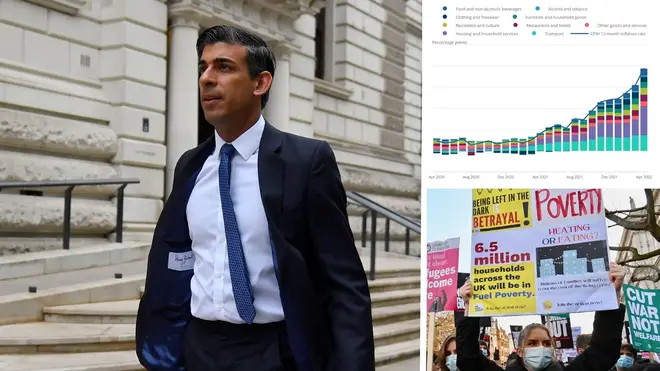
Inflation has soared to a 40-year high as Chancellor Rishi Sunak 'plans to increase the warm home discount and cut taxes in the autumn' to help struggling Brits cope with the cost of living crisis.
The rate shot up to nine per cent last month, reaching its highest comparable readings since 1982.
It was a jump from an already high seven per cent in March, the Office for National Statistics (ONS) said.
A large portion of the rise was due to the price cap on energy bills, which was hiked by 54 per cent for the average household at the start of April.
It comes as Rishi Sunak is expected to increase the warm home discount up to £600 - four times what it is now, according to the Times.
In response to the latest figures, Mr Sunak said "we cannot protect people completely" from global problems which contributed to inflation hitting a high in April but we "are providing significant support where we can, and stand ready to take further action".
Meanwhile, Shadow Chancellor Rachel Reeves said: "Today's inflation data will add to the worries families already face as prices soar and pay packets are crunched.
"It makes it even more unconscionable that – while they pile taxes on working people in the midst of this crisis – the Conservatives voted last night against a windfall tax on oil and gas producer profits to cut families’ energy bills.
"Our country faces a cost of living crisis, and a growth crisis.
She added: "We need an Emergency Budget now from the government to tackle the cost of living crisis, and we need a real plan for growth so we have a fairer and more prosperous economy."
Grant Fitzner, chief economist at the ONS, said despite "three-quarters of the increase in the annual rate" coming from utility bills, there were also "steep annual rises in the cost of metals, chemicals and crude oil also continued, along with higher prices for goods leaving factory gates".
"This was driven by increases for food products, transport equipment and metals, machinery and equipment," he added.
Read more: Banks are not 'helpless' says ex-Bank of England governor as he slams 'serious mistakes'
Read more: Tory MP: 'Oil companies have a cartel monopoly' over consumers
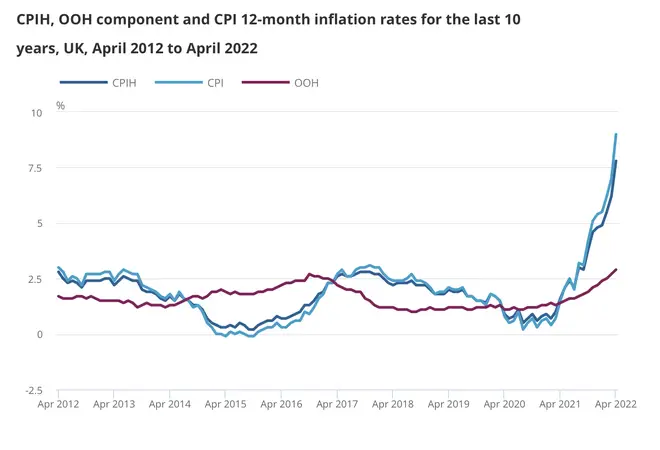
The Chancellor is said to be drawn more towards plans of increasing the warm home discount to deal with the crisis than an increase in benefits because it is less likely to become permanent.
After the cut on bills, the Times said Mr Sunak may then use his autumn budget to cut tax.
It is not yet clear whether the second intervention would come in the form of an income tax reduction or whether it would be a slash in VAT, but the i reports he is considering bringing forward an income tax cut planned for 2024.
The cut - bringing the basic rate of income tax from 20p to 19p - is currently scheduled for April of that year, but Mr Sunak is said to be thinking about announcing it in the autumn.
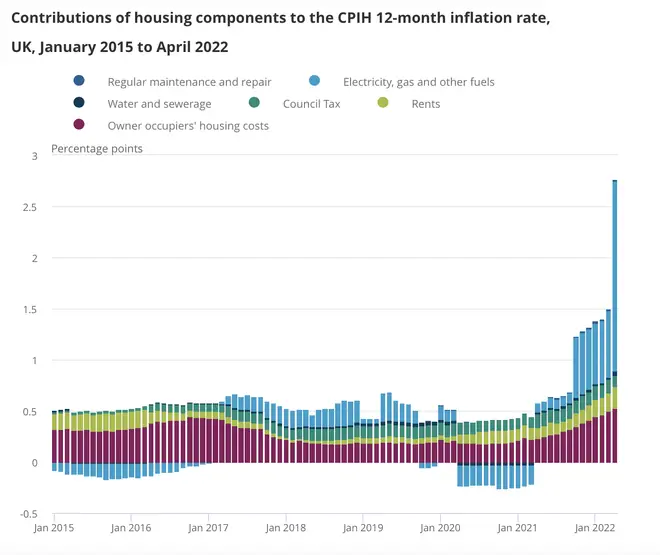
Labour said it will challenge Tory MPs to back a vote pressuring Boris Johnson to commit to an emergency budget addressing the cost of living crisis.
The Prime Minister and Mr Sunak have so far resisted demands to set out new tax-and-spend measures to alleviate the squeeze.
Some Conservative backbenchers accept an emergency budget is required and Labour will challenge them to back its binding vote on Wednesday.
The Labour amendment to the Queen's Speech will note that the Government's legislative agenda it contains "fails to bring forward immediately" an emergency budget.
It will also urge ministers to set out a "new approach to the economy that will end twelve years of slow growth and high taxation" under the Tories.
Labour's thinking was the amendment would not force ministers to bring forward a new Bill by a specific date if passed, but would put massive pressure on the Government to draw up plans.
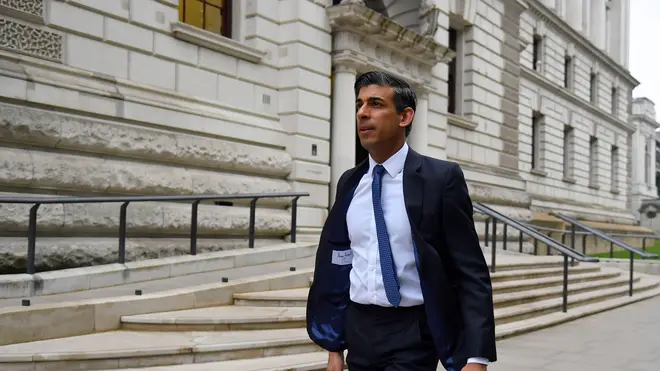
Read more: 'Do something to help,' CBI chief tells Sunak as millions of Brits forced to skip meals
Read more: 'Don't ask for pay rises' Bank boss warns despite 'apocalyptic' food price rises
Opening the final day of the six-day Queen's Speech debate, shadow chancellor Rachel Reeves will highlight the "unfair" tax system adding to the squeeze on wages.
"That's why the Conservatives must back our motion today, not just for them to come forward with an emergency budget to tackle the cost-of-living crisis, but to set out the plan Britain deserves to get our economy firing on all cylinders," she is expected to add.
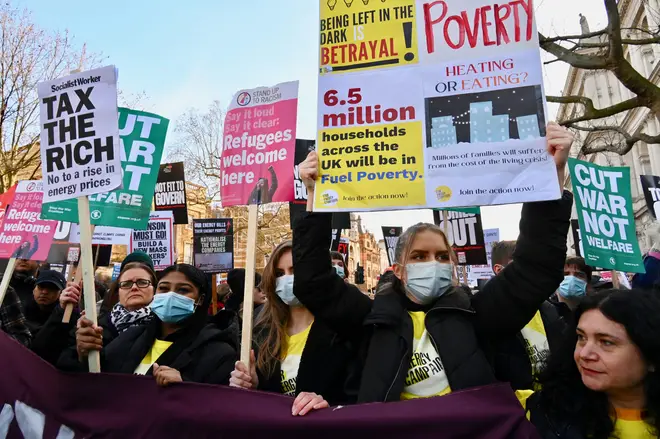
The Government's programme will almost certainly pass, with the Prime Minister commanding a large majority in the Commons and the Queen's Speech being seen as a vote of confidence, so voting against it could cause MPs to lose the Tory whip.
But those who have put on record their support for an emergency budget could face questions over why they did not back the measure when they had the chance.
Mr Johnson has promised measures to help ease the pain of wages falling further behind soaring inflation, but was resisting caving in to demands for a fully-fledged budget.

Rest of the world has put a tax on the UK
The UK has been facing a worsening cost of living crisis.
Soaring bills, rising inflation and hikes national insurance and council tax have all reduced the amount of money Brits have in their pockets.
With costs spiralling and wages falling ever-further behind, more people have had to resort to drastic measures like skipping meals or not heating their homes in order to make ends meet.
Read more: 'Is it contempt for the less fortunate?' James O'Brien blasts Tory Minister over poverty
Read more: Martin Lewis 'loses rag' as he blasts energy price cap changes as 'f***ing disgrace'
On Tuesday, a former Governor of the Bank of England told LBC central banks around the world had made "serious mistakes" by not acting sooner and disputed current Governor Andrew Bailey's claim that the banks were "helpless".
Lord Mervyn King - who was Governor during the 2008 financial crisis - told Tonight with Andrew Marr the Bank of England must send a "strong, clear signal" that they're working to bring interest rates to 1 per cent.
He also claimed "the rest of the world has imposed a tax on the UK" and questioned Mr Bailey's suggestion that 80 per cent of inflation is due to outside forces such as global energy and food hikes, calling it a "debatable figure".